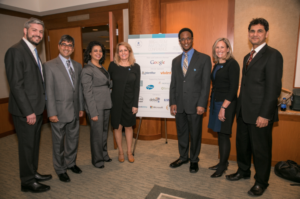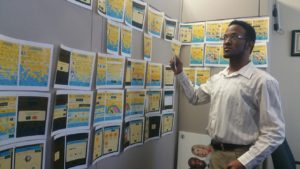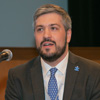The following post was authored by Leslie Long and David Kearon and is being shared with permission from our partner, Autism Speaks.
This October marks the 70th anniversary of National Disability Employment Awareness Month (NDEAM), an opportunity for us all to recognize the great contributions of America’s workers with disabilities, including autism spectrum disorders (ASDs). It is also a time to raise awareness about the obstacles that continue to hold back far too many qualified job seekers from entering the workforce.
Most of us aspire to be competitively employed in a job that we find both appealing and challenging; one that suitably matches our interests and abilities. People with autism are no different. However, research from Drexel University and elsewhere tells us that they are less likely than other disability groups to be employed or pursue postsecondary education. In fact, young adults with ASDs have the highest risk of being completely disengaged from any kind of postsecondary education or employment after high school. And national data indicates that the vast majority of adults with autism are either unemployed or underemployed, with estimates ranging to as high as 90%. This should not be the case, and it won’t be for long.

Representatives from Autism Speaks pause for a photo with close partners from Rangam Consultants and WebTeam Corporation.
At Autism Speaks, we know that these poor outcomes are not due to an inability of people with autism to perform job tasks. We know many adults with ASDs who are demonstrating their competence in a wide variety of industries and at all ranks within businesses around the world. But for the vast majority, these job opportunities are not being made available to them.
Much of this is due to a lack of information and understanding of autism. Another reason for the challenges facing individuals with autism in the workplace is what we call “soft skills.” These refer not to the abilities and skills someone needs to complete a specific job, but instead to the more ambiguous qualities that employers often seek in their candidates. Soft skills include communication and interpersonal skills, the ability to accept feedback, work collaboratively, manage your time, etc. Of course, autism spectrum disorders are characterized, in part, by difficulties in social interaction and verbal and nonverbal communication, putting some people with autism at a disadvantage.
The good news is that these things can change. Autism Speaks and many other organizations are working hard to educate the business community about people with autism and what they are truly capable of. Employers are often unaware of the common strengths shared by many people with autism, including intense attention to detail, commitment to quality and consistency, creative and “out of the box” thinking, excelling on repetitive tasks, lower turnover rates, honesty and loyalty. These qualities have been verified by businesses that have benefited from recent autism-specific hiring initiatives, including Microsoft, SAP, Walgreens, Zenith Optimedia, and a growing list of other acclaimed corporations.

Gerald Franklin, lead designer of The Spectrum Careers, uses his background in accessibility and inclusive design to work through the site’s design.
Likewise, individuals with autism can improve their soft skills with some simple, direct instruction. And simple employment supports can be extremely effective. Such supports can include using written instructions, a smart phone or tablet for reminders and schedules, or visual cues in the workplace. Or for more intensive supports, a job coach can be acquired through a local supported employment agency. Supports can be funded by a state vocational rehabilitation agency or similar state agency that can make the process of finding and paying for a job coach smooth. A job coach can be present at the job site and should not impede the training process. In fact, they can enhance and reinforce the training. Job coaches can have a less obvious role by meeting the employee of the job site and support ancillary employment goals such as transportation and other job related needs.
In addition to the benefits to their labor force, companies have seen a benefit to their customer market. Savvy marketers, human resources personnel and business development professionals already recognize that capitalizing on the return on investment of employing people with disabilities reflects the $3 trillion market globally that is controlled by persons with disabilities. Persons with disabilities and their families, friends and associates represent a $220 billion dollar market in the US alone. They, like other market segments, purchase products and services from companies that best meet their needs – and a large number of Americans also say they prefer to patronize businesses that hire people with disabilities.
Thus, businesses today have a tremendous opportunity to access a largely untapped labor pool of qualified job candidates who happen to have an ASD diagnosis. To help connect the business community with these candidates, Autism Speaks was proud to introduce a new web-based job portal called www.TheSpectrumCareers.com. This website was developed in partnership with Rangam Consultants Inc., a specialist in staffing for Fortune 500 clients, and the site’s builder, WebTeam Corporation, developers of cutting edge technological solutions for autism. The website and app allow candidates to search for jobs by keywords and geographic location, then apply for positions that best match their skills, education, experience and interests. Candidates and employers can customize their searches, connect with job coaches and other support services, or submit a video resume that enables a candidate to demonstrate a job-related skill for a prospective employer. Autism Speaks also posts links to employment resources such as an Employment Tool Kit and an Employer’s Guide to Hiring.
And to celebrate NDEAM 2015, Autism Speaks is excited to announce that this alliance grows even more robust thanks to a new collaboration with DirectEmployers Association, a leader in solutions for federal contract compliance and recruitment marketing with over 800 member businesses. Millions of appealing and challenging job opportunities at those companies will soon be made available to job seekers with autism through TheSpectrumCareers.com. Working together, let’s help change the future for people with autism in the workplace.


Leslie was appointed by New Jersey Governor Corzine to serve on the “New Jersey Adults with Autism Task Force,” received recognition for Advocacy Work on behalf of Medicare beneficiaries by the Centers for Medicare & Medicaid Services, recognized by the New Jersey Senate on behalf of her work on a series of bills for autism with autism and received leadership recognition for service to persons with supported employment by New Jersey APSE. Leslie has been interviewed by media outlets CNBC, NJN, NPR, written articles, and traveled the country speaking on issues impacting adults with autism.
